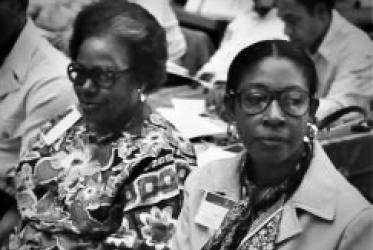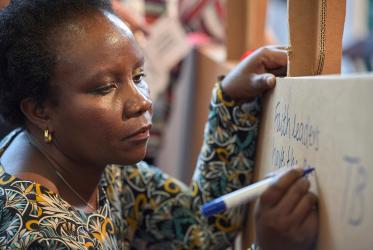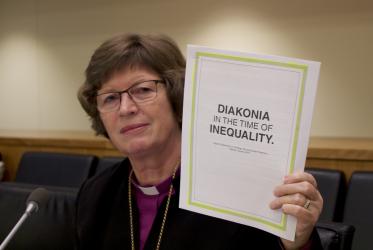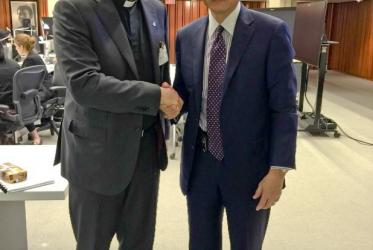Displaying 1 - 14 of 14
In pictures: Week of Prayer for Christian Unity
01 February 2021
New student body at Bossey Ecumenical Institute “a source of joy”
14 September 2020
Dr Saïd Ailabouni: God is on the side of rejected, oppressed, occupied
12 September 2019
Turning mercy and compassion into action
04 March 2019
Sustainable resourcing for sustainable development
05 February 2019
International affairs facilitator reflects on pilgrimage
31 March 2016
Churches engage in development dialogue on Africa
06 March 2013












